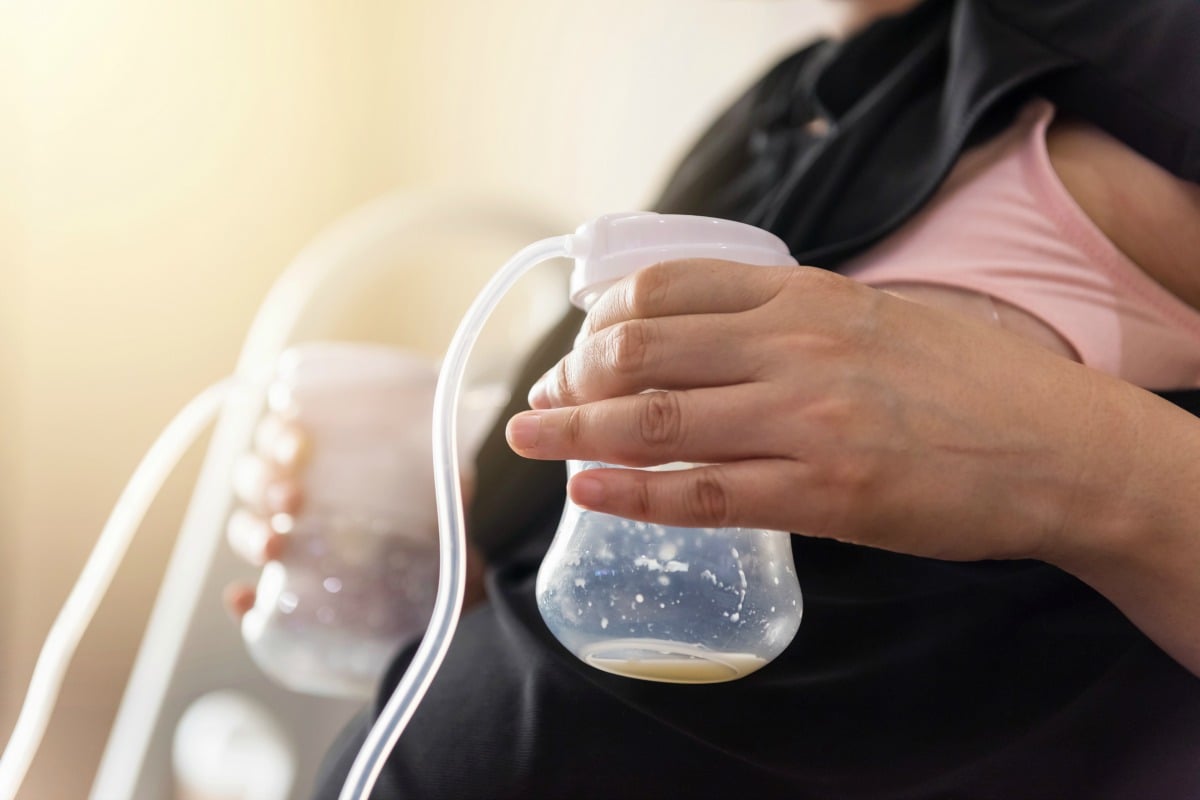
If you’re pregnant or a new mum, and you still have a million questions about breastfeeding, bottle feeding and the gamut of information out there, we hear you.
Which is why we asked around our pregnant pals for their most common feeding questions, then handed them over to certified lactation consultant Kristy Newnham to weigh in.
Kristy tells Mamamia her aim is to eliminate the doubt new mums feel that’s brought on by unrealistic expectations placed on child development and breastfeeding. Instead, she wants to empower mums through education and most important of all, “build their confidence to listen to their intuition.”
Of course, the opinions expressed in this piece won’t apply to all situations. As Kristy says, there is no ‘one size fits all’ approach to feeding your baby and every parent will have a different experience. We’re firmly in the fed is best camp, and breastfeeding won’t necessarily be an option for all new mums.
But if you want to know what other women are asking about feeding, pumping and managing your milk supply, read on.
If your boobs aren’t leaking before you have your baby, does it mean you have less chance of creating milk? Heaps of mums in this group I’m in on Facebook are already leaking colostrum…
Many women do leak colostrum before they have their baby but a lot don’t, and the amount of colostrum that you can express before you have your baby plays no part in your ability to make milk once you have had your baby.
During your pregnancy, the hormones oestrogen and progesterone help to grow and develop your breast tissue and the structure of your breasts to enable you to breastfeed. From as early as the 16th week of pregnancy your body has the ability to make colostrum (baby’s first milk jam-packed with immune building properties) but until you birth your baby and your placenta the pregnancy hormones hold back your body’s ability to make copious amounts of milk.
